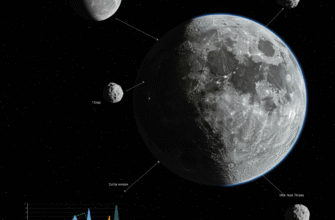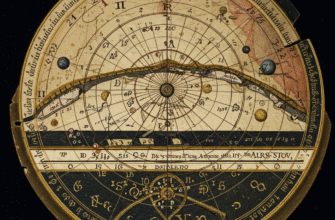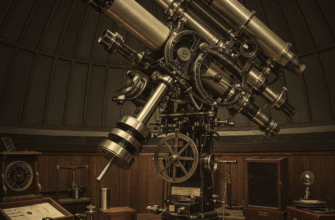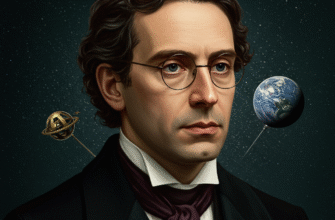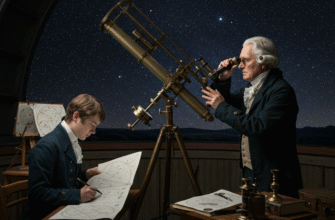The wail that tore from Gilgamesh was not merely of grief, but of a universe collapsing. Enkidu, his brother in spirit, his other half forged in the wild, lay still. This hero, two-thirds god, one-third man, king of Uruk, builder of ramparts that kissed the sky, had never truly tasted fear until he saw the unblinking void in his friend’s eyes. It was a chilling premonition of his own end, a stark, unwelcome truth that ignited a desperate, consuming fire within him: the quest for eternal life, a journey that would take him to the very edges of the known world, and metaphorically, towards the distant, uncaring stars.
The Shattering of a Demigod’s World
Before Enkidu’s demise, Gilgamesh was a force of nature, a ruler whose power was as immense as his arrogance. He was the shepherd of his people, yet sometimes a wolf among them. The gods created Enkidu to temper him, and in their legendary friendship, a profound transformation began. But mortality, that great leveler, paid no heed to divine parentage or earthly might. Enkidu’s death stripped Gilgamesh bare, revealing the vulnerable human core beneath the veneer of the demigod. The glory of Uruk, the hymns sung in his praise, all turned to ash in his mouth. What good were monumental walls if their builder was destined for dust?
His lamentations were cosmic in their scale. He roamed the wild, clothed in animal skins, a mirror of Enkidu’s own emergence into civilization, but now in reverse. His heart was a cold stone. The fear of death became an obsession, a constant whisper that drove him onward, away from Uruk, away from the familiar, into the unknown. He would seek Utnapishtim, the Faraway, the only mortal to have survived the Great Flood and been granted immortality by the gods. Surely, Utnapishtim held the secret.
A Perilous Path to the Faraway
Gilgamesh’s journey was no mere trek across deserts and mountains; it was a passage through realms that blurred the lines between the terrestrial and the divine, a symbolic striving towards an unattainable celestial permanence. He faced monstrous scorpion-men, guardians of the sun’s passage through the Mashu mountains, beings whose terror could kill with a glance. Yet, propelled by his singular, desperate hope, Gilgamesh pressed on, through twelve leagues of darkness where the sun never shone, a metaphorical descent into the underworld of his own fear.
Emerging into a wondrous garden of gemstone trees, he encountered Siduri, the enigmatic ale-wife who dwelled by the edge of the cosmic sea. She, cloaked in divine wisdom, tried to dissuade him from his impossible quest.
Siduri’s Counsel:
- Embrace the joys of mortal life.
- Find solace in family and simple pleasures.
- Recognize that death is the lot of humankind.
But Gilgamesh, blinded by his terror and his sliver of divine heritage that screamed against oblivion, could not heed her words. He saw only the shadow of his own grave. Siduri, perhaps pitying his tormented soul, directed him to Urshanabi, the ferryman of Utnapishtim, the only one who could navigate the Waters of Death that separated the mortal world from the realm of the immortal survivor.
The Epic of Gilgamesh, originating from ancient Mesopotamia, is considered one of the earliest surviving great works of literature. Tablets containing parts of the story date back as far as the 18th century BCE. Its themes of friendship, loss, and the human search for meaning and immortality resonate even today, offering insights into early human civilization.
Confronting the Immortal and the Inevitable
Across the lethal waters, guided by Urshanabi, Gilgamesh finally reached Utnapishtim. Here was the man who had cheated death, who lived an eternal, tranquil existence gifted by the gods. Gilgamesh poured out his story, his anguish, his desperate plea for the secret to unending life. Utnapishtim listened, perhaps with a touch of weary understanding that only an immortal who was once mortal could possess.
Instead of a magical formula, Utnapishtim recounted the story of the Great Flood, a secret of the gods, and how he, through divine instruction, built an ark and saved life on earth. His immortality was a unique gift, a reward for his role, not a prize to be won through striving. To test Gilgamesh, to show him the chasm between mortal frailty and divine endurance, Utnapishtim challenged him to stay awake for six days and seven nights. If he could conquer sleep, the cousin of death, perhaps he was worthy of a greater boon. But Gilgamesh, utterly exhausted by his cosmic ordeal and his own searing grief, succumbed almost immediately to a profound slumber, a sleep so deep it lasted for seven days. Each day, Utnapishtim’s wife baked a loaf of bread and placed it beside him, the varying states of decay upon his waking a silent testament to his failure.
Gilgamesh’s inability to conquer sleep serves as a powerful metaphor in the epic. It underscores the inherent limitations of human beings, even one as mighty and part-divine as Gilgamesh. This failure is a pivotal moment, forcing him to begin confronting the profound reality of his mortal nature and the unbridgeable gap separating humans from gods.
A Fleeting Glimmer of Hope
Though Gilgamesh failed the test, Utnapishtim, perhaps moved by his wife’s compassion or by the sheer magnitude of the king’s despair, offered him a final, parting gift: knowledge of a miraculous plant. This plant, growing at the bottom of the Apsu, the sweet cosmic waters beneath the earth, possessed the power to rejuvenate, to restore youth, though not to grant eternal life. It was a consolation, a way to perhaps outwit old age for a time, a whisper of the eternal he craved.
With renewed determination, Gilgamesh tied stones to his feet, plunged into the depths, and seized the thorny plant, its prickles drawing his blood but its promise invigorating his spirit. He wouldn’t eat it immediately. No, he would take it back to Uruk, share it with the old men of his city, and then partake himself. For a moment, the weight of his journey seemed to lift. He had a tangible prize, a fragment of the eternal he had so desperately sought, a starlight captured from the abyss.
The Serpent’s Theft and the Dawn of Wisdom
The journey back was long, fraught with the quiet tension of hope. One fateful evening, weary and perhaps too content, Gilgamesh decided to bathe in a cool pool. He left the precious plant, his hard-won treasure, on the bank. As he refreshed himself, a serpent, drawn by the plant’s otherworldly fragrance, slithered out from the reeds, devoured it, and immediately shed its skin, a potent, living symbol of rejuvenation and renewal that Gilgamesh himself had just lost. His cry of anguish echoed the one he let out for Enkidu, but this time it was mixed with a bitter, profound resignation. He had grasped the edge of the stars, only to have it slip through his fingers, stolen by the earth itself.
Empty-handed, heart heavy with a new kind of understanding, he returned to Uruk with Urshanabi. As they approached the city, Gilgamesh gestured towards its magnificent walls, the very ramparts he had once boasted of with youthful pride.
His words to Urshanabi were telling, a quiet revelation: “Go up, Urshanabi, walk on the ramparts of Uruk. Inspect the base, view the brickwork. Is not its brickwork of burnt brick? And did not the Seven Sages lay its foundations? One league city, one league palm gardens, one league clay-pit, half a league the temple of Ishtar: three leagues and a half is Uruk’s expanse.”
In that moment, something profound shifted within the weary king. The immortality he had chased across the cosmos, among metaphorical stars and divine gatekeepers, was not to be found in elixirs or divine favor for his person. Instead, it lay in legacy, in the enduring works of humankind, in the stories that would be told, in the civilization he had built and would continue to nurture. The walls of Uruk, which would stand for generations, became his answer to the void, his testament against oblivion. His cosmic journey, though it failed in its stated aim, had led him to a deeper, more human understanding of life and his place within its grand, transient tapestry.
The stars he sought were not ultimately in the distant, cold heavens, but reflected in the enduring spirit of human creation and the shared memory of a people. Gilgamesh, the king who had journeyed to the end of the world in fear of death, finally found a measure of peace not by conquering it, but by accepting its inevitability and embracing the life he had been given, dedicating his remaining days to his city and his people. His true immortality was etched not in divine script, but in the clay tablets that would carry his epic tale through the millennia, a story of human striving, loss, and the enduring search for meaning.

